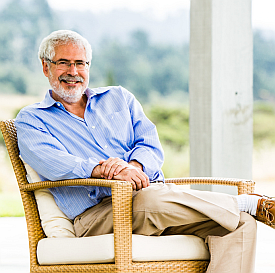National Science Foundation is adding three regional consortiums under its Innovation Corps (I-Corps) program to encourage campus entrepreneurship from university research. The three awards going to university I-Corps nodes in and around San Francisco, Washingon, D.C., and New York City total some $11.2 million.
I-Corps aims to help academic scientists funded through NSF make the transition to entrepreneurship. I-Corps teams are composed of researchers, entrepreneurs, and mentors, operating at university sites. I-Corps nodes, including the three new grant recipients, are regional hubs that deliver training in entrepreneurship and commercialization to participating teams. NSF nodes are already operating at University of Michigan and Georgia Tech.
The San Francisco consortium involves University of California at Berkeley, University of California at San Francisco, and Stanford University, and will be lead by Berkeley business professor Richard Lyons and Silicon Valley entrepreneur Steve Blank (pictured left), also a Berkeley faculty member. The consortium is applying Lean Launchpad techniques for start-ups developed by Blank, and examining how I-Corps training influences research commercialization. The group is also investigating the process of forming entrepreneurial teams, and ways of measuring team evolution and effectiveness.
The Washington, D.C. collaboration is led by Dean Chang at University of Maryland, the campus’s associate vice president for innovation and entrepreneurship, with colleagues from George Washington University and Virginia Tech. This consortium will establish an I-Corps mentor network to attract, train, and retain effective mentors for start-ups. The group also plans to offer a follow-up program to help new companies after their I-Corps training with day-today issues such as, product prototyping, technology transfer and licensing, fundraising, legal services, and hiring executive talent.
The New York City consortium is led by Gillian Small at City University of New York, that campus’s vice chancellor for research, with colleagues from New York University and Columbia University. The New York City node plans to develop an open-source software suite for analytics and start-up operations based on the Lean Launchpad model. In addition to support for campus-based business teams in New York City, this group also has workshops and counseling for non-academic entrepreneurs in New York City, as well as small business development centers in New York State.
Read more:
- Janssen R&D Opens Lab Space to Individual Entrepreneurs
- EC Opens Proof of Concept Funding Call
- MIT Entrepreneurial Center Awards Technology Grants
- U.K. Devotes £60 Million for Science Entrepreneurship
- Life Sciences Can Generate Start-Ups, With a Little Help
* * *


 RSS - Posts
RSS - Posts
[…] NSF Adding Three I-Corps University Innovation Centers […]